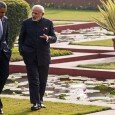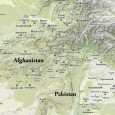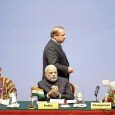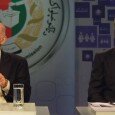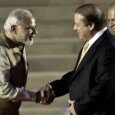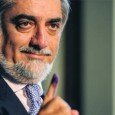By Rahimullah Yusufzai –
Sharing power is an alien concept in Afghan history and allies have often turned into foes if their interests weren’t adequately served
After 13 long years, Afghanistan got a new president in place of Hamid Karzai on September 29 as the first peaceful transfer of power in more than 100 years took place in the conflict-ridden country.
However, 65-year old Dr Ashraf Ghani Ahmadzai became the president after agreeing to share power with his electoral rival, Dr Abdullah, following intensive mediation by US Secretary of State, John Kerry. A new post of chief executive officer, akin to prime minister, was created to accommodate Abdullah, the 54-year old former foreign minister who refused to accept the result of the presidential election as he alleged that it was rigged in Ashraf Ghani’s favour.
As there is no provision of prime minister in Afghanistan’s constitution, the traditional Loya Jirga would be convened within two years’ time to seek its approval for a constitutional amendment for creating the new executive position in the national unity government. The existing presidential system could eventually become parliamentary or an amalgam of the two, though the process won’t be smooth considering the strong sentiments prevalent in multi-ethnic Afghanistan in support or opposition of these concepts.
The proposed power-sharing arrangement would be complex as it hasn’t been attempted in Afghanistan in the past. Sharing power is an alien concept in Afghan history and allies have often turned into foes if they felt slighted or their interests weren’t adequately served. The Afghan ruling elite leading the unity government would be embarking on an unknown journey into uncharted territory.
It would be a huge challenge for Ashraf Ghani and Abdullah to make the power-sharing agreement work so that their unity government doesn’t fall apart. In their case, working together would be even more difficult after having bitterly fought an election against each other and wrangled over its outcome for months.
The Afghan presidential election must have been the longest anywhere in the world as the first round of polling involving eight candidates was held on April 5 and its outcome became known more than five months later by September 21. As the first round failed to produce the winner because the two top vote-getters, Abdullah and Ashraf Ghani, couldn’t get the required 50 percent of the polled votes, the run-off vote was held on June 14.
After having bagged nearly 45 percent of the vote in the first round of polling to emerge the frontrunner, Abdullah rejected the announcement of the preliminary result of the run-off vote by the country’s Independent Election Commission that showed Ashraf Ghani in the lead.
In a remarkable turn of fortune, Ashraf Ghani had leapt from 32 percent of the vote in the first round to nearly 56 percent in the run-off vote while Abdullah’s share of votes dropped from around 45 to 34 percent. The vote had many shortcomings and it wasn’t surprising that the outcome was contentious. The Independent Election Commission head Ahmad Yousuf Nuristani conceded that the fraud in the polls was wide-ranging but it couldn’t be properly detected despite help from the United Nations Assistance Mission in Afghanistan (UNAMA) and the presence of hundreds of Afghan and foreign observers.
The full election result wasn’t made public as demanded by Abdullah under the terms of the power-sharing agreement. However, the winner certificate presented to Ashraf Ghani by the Independent Election Commission did mention that he won with 55.27 percent of the total votes. This amounted to 3.93 million out of the 7.12 million that were polled.
The details of the proposed unity government have not been made public yet, but media reports said it envisages equal sharing of the cabinet positions between the president and the chief executive officer and setting a roadmap for undertaking constitutional amendments by convening the traditional Loya Jirga of Afghan notables. Until the Loya Jirga is held, President Ashraf Ghani would be constitutionally empowered to exercise full powers like his predecessor Karzai.
On the other hand, Abdullah’s authority would be subject to the approval of the President. As Abdullah and his supporters haven’t formally conceded defeat in the presidential election, they see the unity government as power-sharing between two equals. Abdullah is unlikely to hold on to a ceremonial position of chief executive officer until he is adequately empowered. One should expect frequent tussle between the two over the distribution of powers and a persistent role for the US to undertake mediation to keep the unity government on track.
The US alone as the biggest donor to Afghanistan and guarantor of its security has the leverage to make this happen. The continued presence of US troops even if at a reduced strength of 9,800 following the drawdown of the Nato forces post-2014 would ensure not only delivery of Washington’s military and economic assistance to Afghanistan, but also keep it engaged in Afghan affairs.
Ashraf Ghani has promised to revive Afghanistan’s depressed economy, fight corruption and improve security by engaging in a meaningful peace process with the Afghan government’s armed opponents, mainly the Taliban. It would be a huge challenge to make progress in achieving these objectives, more so from the platform of a unity government run by two men with different backgrounds and support base and often conflicting agendas.
![]() The writer is renowned journalist and resident editor The News Peshawar
The writer is renowned journalist and resident editor The News Peshawar






















































































